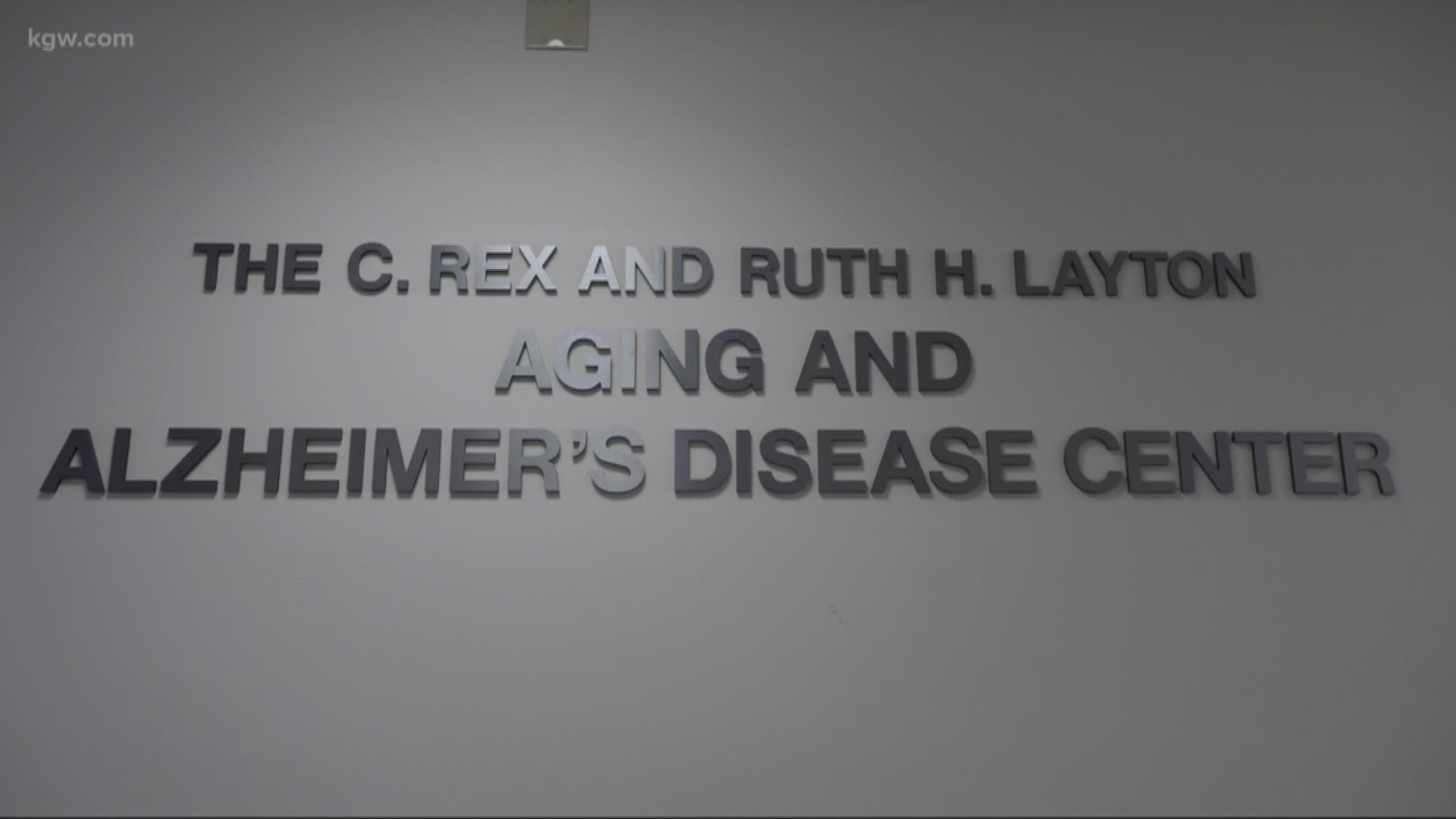PORTLAND, Ore — An Oregon researcher is shaking up the way we think about clinical studies and long-term research on Alzheimer’s disease.
Wearable and sensory technology called Life Lab systems are tracking the day-to-day lifestyles of aging adults, which gives researchers better insight into how the way we live affects the way we age.
Director of the Aging and Alzheimer’s Disease Center at OHSU, Dr. Jeffery Kaye, has spent the past 30 years studying and understanding the way we age. Fast forward to 2019 and he is finding a better way to do that research.
For the past 15 years he and his colleagues have used an array of sensors to assess changes in the lifestyles of aging adults at home.
“We have this continuous life record of individuals over time that's unparalleled. There's nowhere else in the world, actually, that this data exists,” Kaye said.
As technology has evolved, so has the research.
“The new way of doing things is that we use technology in the home to understand how people age every day,” Kaye said. “And these are things like wearables, passive sensors in the home, a scale that tells us their weight and pulse every day, ways of looking at how they sleep at night without them having to do anything.”
Earlier this month Kaye and his team presented their research on Life Lab systems to the Alzheimer’s Associations International Conference in Los Angeles.
The sensory technology collects information about mobility, cognitive function, sleep, weight and more. That data gives researchers better insight on how things like walking speed, sleep disruption and getting outside and socializing can signal Alzheimer's disease down the road.
It gives researchers a real-world look at whether Alzheimer’s treatments are working.
“Is it just because I scored a few more points on a memory test or is it that I’m actually able to get our more frequently, I can use my computer better, I can remember to take my medications when I need to? Practical things. And that’s the kind of data that the technology brings to us,” Kaye said.
It could also be revolutionary in the way clinical trials are conducted. Using in-home tracking methods through technology can show researchers if Alzheimer’s treatments are working using practical day-to-day data, according to Kaye.
“That's caused a whole revolution now in understanding how people are aging, how they may be at risk for Alzheimer's disease; how we might actually be able to more quickly develop treatments to really do something meaningful for people who will get Alzheimer's disease or who have it.”
The $8 million project funded by NIKH and the VA is called CART, or Collaborative Aging Research Using Technology, and it began more than a year ago. It has put Life Lab systems in more than 240 homes across the country.
“We believe and the reason the NIH and the VA are funding these studies is that this kind of approach is the way clinical research needs to be done going forward. We need to get away from people having to come into a clinic on a particular day, have to drive hundreds of miles in some cases and then drive back home,” Kaye said.
Because of the accessibility of the data, researchers can study a diverse population, including low-income octogenarians in Portland; African-Americans and other minorities living in Chicago and Miami; and veterans living in rural areas of the Pacific Northwest.
“We need to be able to be more inclusive in people. So, just because you live in a particular area you can’t even participate in research. So, those barriers have been broken down now by having this kind of technology available.”
Over four years, this demonstration project will determine how to optimally use this new kind of data to facilitate independence and health for as long as possible. The work happening now will lead to CART Phase II with a goal of scaling the network to more than 10,000 homes across the U.S.
“We believe that this kind of approach is the way clinical research needs to be done going forward,” Kaye said.
The goal is to create a national research model using new tech to ensure independent, healthy aging for our growing aging population.
Here’s a look at more Alzheimer’s research coming out of OHSU:
Social engagement: A new clinical trial is testing whether socially isolated seniors can stave off dementia through prescribed time with trained conversationalists via home-based video chat technology.
Walking and reminiscing: An initiative to energize African American older adults to walk and reminisce through historically black neighborhoods in north and northeast Portland is poised to expand to other U.S. cities.

